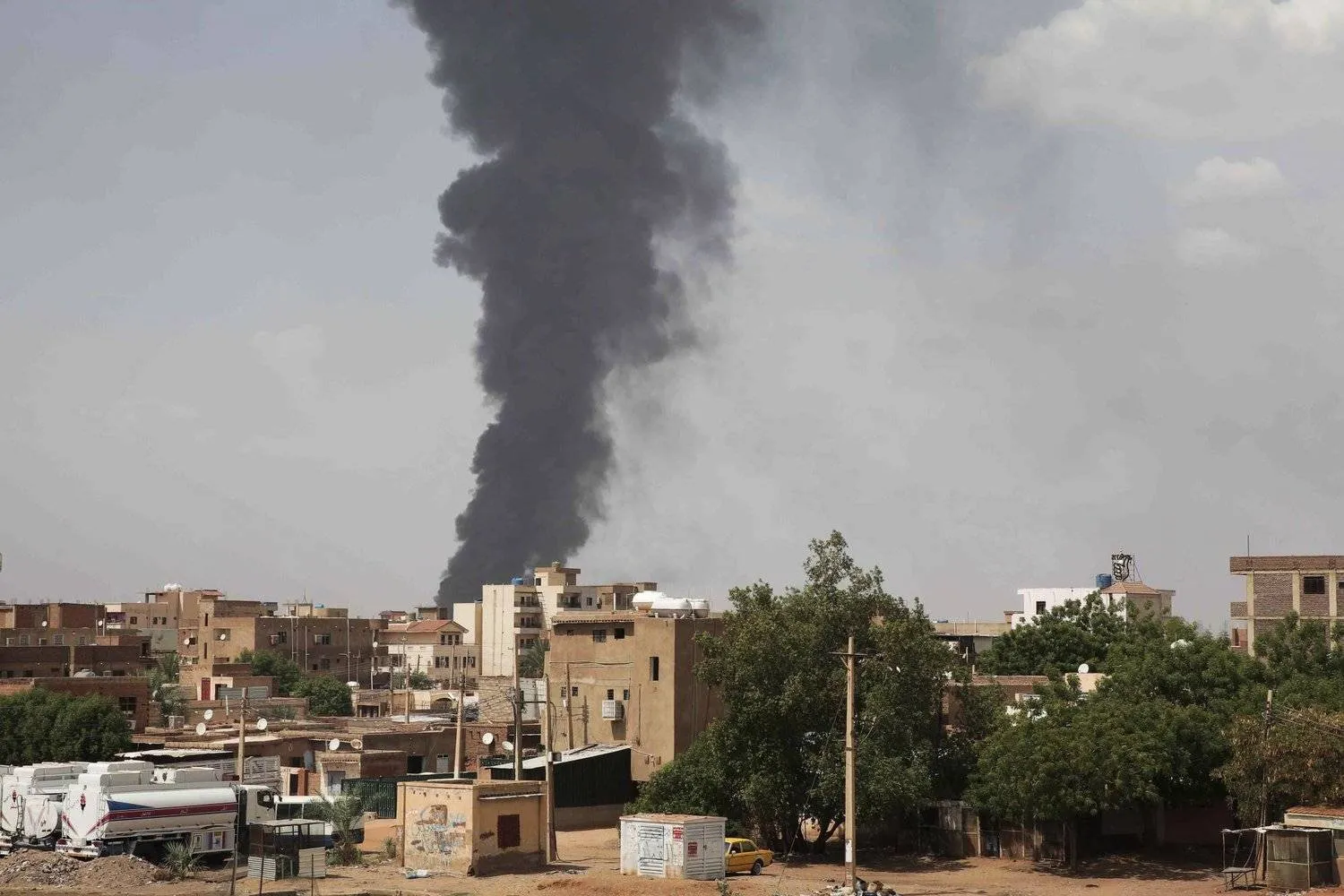Massive explosions rocked the Sudanese capital, Khartoum, and several air raids focused on areas controlled by the Rapid Support Forces (RSF) in the city's southern neighborhoods.
According to eyewitnesses, huge flames were seen in the center of Khartoum and around the vicinity of the presidential palace, large parts of which had been previously destroyed by intensive air strikes.
Explosions were heard in the sports city and the central market, targeting the RSF.
The Rapid Support responded by launching an artillery attack on army positions at the headquarters of the General Command and the Armored Corps, according to sources.
Before that, the head of the Sovereign Council, Army Commander Abdel Fattah al-Burhan, left Thursday his main headquarters in central Khartoum, which the Rapid Support Forces surround from several sides.
Residents said the army's drones bombed RSF sites in several neighborhoods north of Bahri.
On Friday, the Sudanese army announced that it had responded to a new attack by the Rapid Support Forces on the headquarters of the Armored Corp, during which they suffered heavy losses.
-Freedom and Change warns
Meanwhile, leaders in the Forces of Freedom and Change warned against Burhan's decision to form a caretaker government, according to what his close circles reported.
A member of the Executive Office of the Forces, Yasir Arman, said on the X platform that the "remnants" are waiting for Burhan in Port Sudan to form a caretaker government to prolong the war and plunder public money.
Arman wondered if Burhan would fulfill their desires at the expense of the people.
Furthermore, the People's Liberation Movement - Revolutionary faction, led by Arman, confirmed in a statement signed by his deputy, Buthaina Dinar, that the armed forces helped extract Burhan from the military headquarters.
The statement warned that reports about Burhan's intention to form a government in Port Sudan under the leadership of the remnants will deepen national divisions.
The movement suggested holding extensive consultations with all national and democratic forces and unifying a negotiation platform with regional and international partners to end the war
-Fear of division
The statement cautioned that expanding the war will not resolve the issue, and there is an opportunity for the army commander to present a new agenda that meets the people's agenda.
It warned that forming a government in Port Sudan might lead to establishing a parallel authority. It noted that it was better to harness all national energies towards a peaceful solution leading to a civil and democratic transition.
Burhan, who is currently in the Nile River state, is expected to arrive in Port Sudan city soon before heading on a foreign tour to neighboring countries.
-US condemnation
Furthermore, the United States strongly condemned pervasive conflict-related sexual violence (CRSV) in Sudan, which credible sources, including victims, have attributed to the RSF and their allied militias.
The US embassy in Khartoum said that “the numerous reports of rape, gang rape, and other forms of gender-based violence against women and girls in West Darfur and other areas are alarming.”
It warned that these “acts of brutality contribute to an emerging pattern of targeted ethnic violence.”
The US embassy echoed the UN Special Representative of Secretary-General Patten in calling on the RSF to condemn CRSV, commit to effective measures to prevent and address any acts of CRSV and declare zero-tolerance for sexual violence.
The statement called on the RSF and Armed Forces to immediately halt the fighting and allow safe passage for all civilians out of Nyala and South Darfur, asserting that “perpetrators of atrocities must be held accountable.”
“Accountability for sexual violence in conflict is a core priority for the US government, as reflected in the Presidential Memorandum signed by President Biden in November 2022, which directs the use of all available tools including legal, policy, diplomatic, and financial tools to deter such violence.”
On Friday, the US ambassador to Sudan, John Godfrey, stressed that the “belligerents, who have demonstrated they are not fit to govern, must end the conflict and transfer power to a civilian transitional government.”









